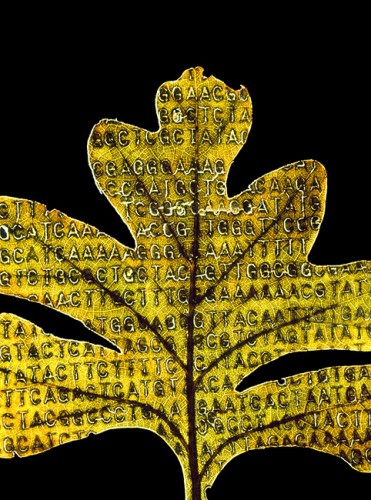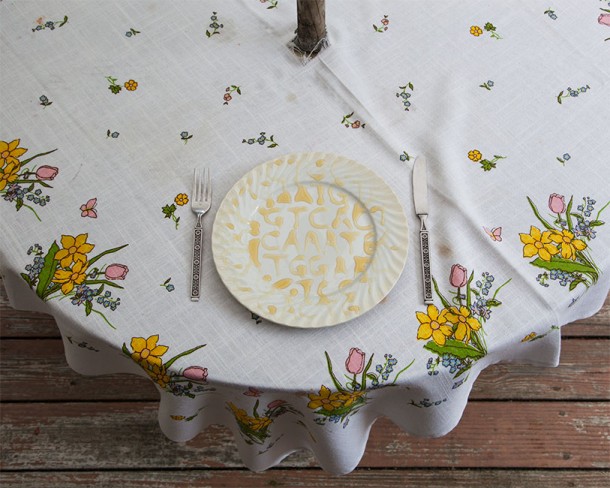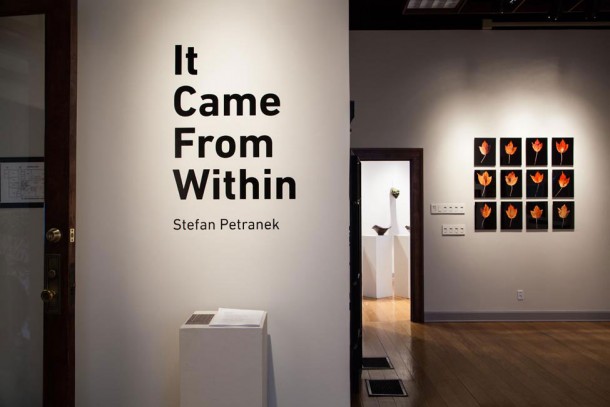A contemporary alternative of explaining the relationship among humans and nature in front of the technological advances is an initiative of Stefan Petranek, an American visual artist trained as a biologist. His CODEX exhibition and the GENETIC PORTRAIT PROJECT invite the public to answer the question of ”What does the future hold”?
It is not an uncommon occurrence for art to be used in expressing social perceptions and experiences, but it rarely happens that art intersects with science, biology and genetics. Modern technologies and the scientific evolution have dominated the way we understand the world and the everyday developments. Moreover, the supremacy of science has limited the scope of our spiritual and natural experiments, colouring our experience of everyday life.
Stefan Petranek, a professor of Photography and Intermedia at Herron School of Art and Design in Indianapolis, brings a creative practice in the field of genetics and photography, which can teach us a lot about ‘’now’’ and make us think about the future. Being a very original and unique work it has raised many questions from the wide audience. Another interesting initiative of Stefan was initiated in 2010 and is called the Genetic Portrait Project, a project which has attracted a lot of professionals and individuals interested in genetics, with the aim to explore other perspectives and highlight the meaning of nature in our modern societies. Understanding that different people can have different perceptions about his work, Stefan took a few moment to answer the following questions; though he is open to accept other individual’s responses to his work, as well.
How did you come up with this idea expressed through visuals and art but biological in its essence?
SP: As my background in science demonstrates, I have had an interest in how nature operates since childhood. My father spent lots of time answering my questions about how things work. This kept me on a path of discovery and biology consistently fascinated me. In my art, I regularly use biology and natural phenomena in general as inspiration. But with time, I’ve become more and more concerned with the role of science in society. How does it change our perceptions about life, the world around us, etc. It influences are lives in big ways. The CODEX exhibition uses DNA as a metaphor of how knowledge from science is changing how we see the world around us. Thus surfaces, be them skin, grass, or leaves are inscribed with code.
Having experience in biology and technology, also being a visual artists what do you think about the relation that exists between arts and science?
SP: Artists and Scientists are often after the same thing-Truth. We search for a deeper understanding of our surroundings, but the methods and the immediate motivations or rational as to why we should “look” deeper are quite distinct. I’m always interested to hear about how scientists and artists have interacted in the past, yet it is quite rare, at least in a formalized way. It is easy to characterize artists interested in science, as needing access to science to make their work and that scientists really don’t need the artists. Yet that lacks a larger understanding of how vulnerable science is to society’s needs and expectations. Artists actually have a really important role to react to and interpret advances in science. Artists can often point out pitfalls in how those advances will be received. And actually, because artists are no creative, given chances they can often spur new ideas and connections for scientists in how to approach their experiments and research.

Nine Leaves | Stefan Petranek
What is the real message behind the Genetic Portrait Project and how do you see the genetic research in the future?
SP: The Genetic Portrait Project, is simply a reflection of people’s collective thoughts about how advances in genetic research will change us or affect us. CODEX reveals my reflection on how all this knowledge makes us see life/biology/ourselves as constructed of interchangeable little pieces rather than a whole entity. When we look out and see a tree, generally we think of it as a physical object that is a tree. But modern biology, see it as a big data set. The DNA controls the operation of the tree. If you control the DNA, you can control the Tree similar to how you can control a machine.
But in the Genetic Portrait Project, I wanted to turn the lens back on others and catalogue our collective voice on these advances. I think about them all the time, but what do others think? Do they worry; do they trust the future and humanity? Do they not even concern themselves with such specifics? The Genetic Portrait Project is really a documentary project, to catalogue people’s thoughts at this epoch. I believe advances in genetics have really changed the way biological research is practiced in the last 20-30 years. Medicine and Agriculture are seeing tremendous changes. I think we will look back and see this as the very beginning of a big change in how we define life. So what do we think in the now?
What is the feedback you have received till now?
SP: Nearly all positive. The Genetic Portrait Project has been very well received in the genetic research community. I think they see it as a way of vocalizing the potential and pitfalls of all these advances. I often see that scientists understand that the technology their advances create can be positive or negative depending on how they are utilized. So talking about it through photographs is a great way to construct a dialog. Probably the most difficulty with the work is people not feeling comfortable with science and thus not engaging with the work. The challenge for me is how to keep it accessible. One strategy I have used is to make the images highly aestheticized (i.e. make them seductive, and that you want to look at them). I do worry some that Albanian’s might not be as receptive to the work at those in the U.S. because the relative impact of science on daily life may feel too distant. But I hope it is intriguing and offers a different perspective on what are can investigate.

Genotype | Stefan Petranek
Is technology complicating our life instead of helping us to find the answers?
SP: Often it comes down to this: Are we happier when we know more? I’m not sure we are, but most of these decisions about what we should know will be made for us, so I’m not sure it helps to try to stop all these “advances” happening around us each day.
When asked about the way how he sees the future in terms of technological and scientific advances, Stefan adds that he loves knowing more about nature, about the nature of existence; be it understanding outer space or molecular biology. But he is also sceptical of technology and how we use the knowledge we glean from science to “improve” our lives.
You can see more on Stefan’s work on http://www.stefanpetranek.com/index.html

